How to Grow a Writer’s Brain:
Taking the Myth out of what it takes to be Creative
Paradigm Diagrams
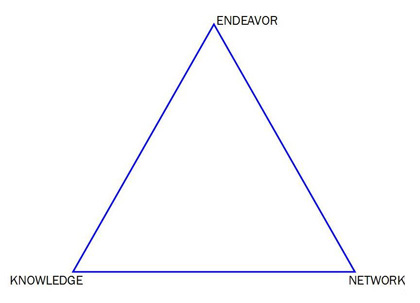
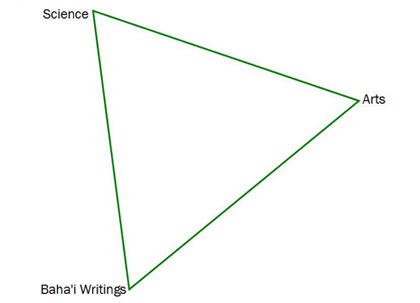
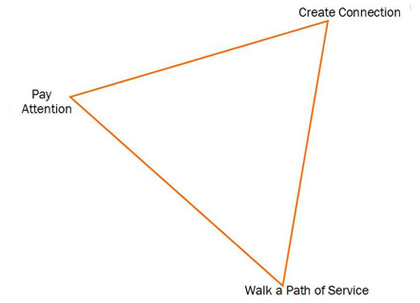
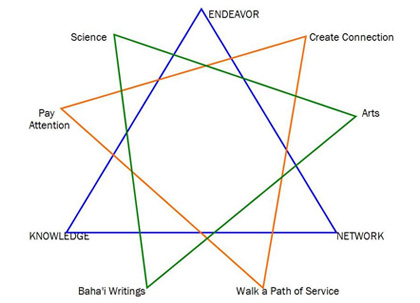
Strategies – Practices – Attitudes for A Creative Life
and Growing a Writer’s Brain
What does it take to coax life from the creative ember within us? To keep the flame burning? Beyond writer tips of the day, what are the deeper attitudes and strategies that not only foster creativity, but sustain it over the long haul? To put it simply: What do we pay attention to and how do we do it effectively? The first step is to set aside popular myths and magical thinking about how creativity works
As I put my 10,000 hours into writing The Story of Baha’u’llah I dis-covered that experienced writers, scientists, and Baha'i writings come together to support the same truths. Seasoned writers speak of apprenticeship in learning the craft. Scientists talk about the 10,000 hours of an “expert-in-training.” Baha’i writings affirm that, “The one in pursuit of anything must undergo difficulties and hardships until the object in view is attained and the great success is obtained.”
Creativity is not about talent, but “effortful study,” say scientists, by which they mean “continually tackling challenges that lie just beyond one’s competence.” Studies show the brain’s ability to “reshape and reorganize itself” throughout life – to change in response to experience. Yes, you can create a writer’s brain. Experts are made, not born. But how to go about it?
“What would a systematic approach to creativity look like?” I wondered. My answer came together in a paradigm – laid out as the nine-pointed visual you see here. It invites us to strategies, practices, and attitudes that nourish and sustain a creative life. It calls on us to 1) engage in study and practice, 2) benefit from working in groups, and 3) operate in a learning mode,
in which we evaluate what works and adjust (revise) where necessary.
The intention is not a tight prescription, but rather a gathered focus for developing both craft and the creative self – and for creating a culture of encouragement. There is always something new to learn, “something more difficult and demanding asking to be tried,” as author Marge Piercy says. Encourgement is what keeps the writer in the room.
The paradigm can begin a conversation with writers about “What works?” and “How does it work for me?” I write about it in my blog Luminous Realities: Exploring the Creative Process. Hilighted here are selected blog posts that explain the basic paradigm and different pieces of it in writing life.
Read all about it:
Paradigm Basics
- Sustaining the Creative Fire
- You Get the Brain You Choose
- “That’s good enough to cut out and put up over your
typewriter.” – Ted Kooser, A Poet Laureate - Apprenticeship: exploration & discovery
A Horse-Trainer Story for Writers
Writers’ Groups
A Spiritual Perspective
- Lotus Temple: An Architect’s Creative Process
- Archeology of the Spirit: A Writer's Note on Fasting
- “. . . the portion of others might fill a cup”
- "The Arts and "This human rational soul"
- “All the wondrous achievements . . .”
Writer Practices
- Writers & Creative Process:
What’s science got to do with it? - Wrestling with the Amygdala
- Writers: Kill the Dragon and Write Letters of Love
- The Chihuahuas are running amuck
– Oh my! One Writer grapples with the Digital Age - Twinkies, Brussels Sprouts and Digital Sabbaticals:
'Is this working for you?'
Writers & Race
- "That tall black one over there." Race, Writers,
and Creating Connection - On the Page and Off -- Race, Writers & Creating
Connection - Race & Writers
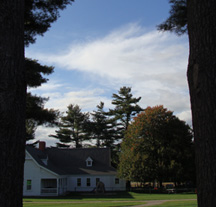
“Arts, crafts and sciences uplift the world of being, and are conducive to its exaltation.”
- Baha’u’llah, Baha’i Writings

"If art demands a long apprenticeship, it also offers the rewards of mastery, that what was once inconceivably difficult becomes second nature, and that always, always there is something more difficult and demanding asking to be tried."
– Marge Piercy & Ira Wood,
So You Want to Write
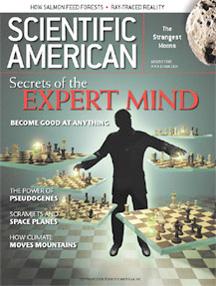
"Ten years of “effortful study” is required, say scientists, to become an expert in any field. “Effortful study . . . entails continually tackling challenges that lie just beyond one’s competence.” “Experts-in-training keep the lid of their mind’s box open all the time.” They pay attention, evaluate, and revise in order to “approach the standard set by leaders in their fields."
- Phillip E. Ross, Scientific American Magazine, August 2006
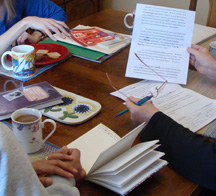
"Concern yourselves with one another. Help along one another’s projects and plans."
– ‘Abdu’l-Baha, Baha’i Writings

"We think of the scientist as a researcher but the effective writer is also a researcher – one who researches life to discover what can and should be said."
- Donald M. Murray,
The Craft of Revision
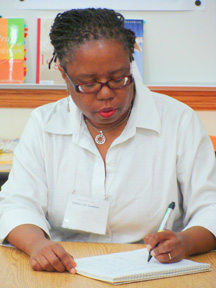
"No one has seen the night sky from exactly your trajectory. No one has loved exactly the people and places you have loved. Who will tell that part of the earth’s story if you do not?"
- Pat Schneider,
Writing Alone & With Others

"If one begins to think what basic attitudes one must adopt in order to use one’s brain in a more comprehensive, more complex, and more highly networked fashion, a whole series of concepts come to mind . . . sensibleness, uprightness, humility, prudence, truthfulness, reliability, courtesy. . . . A person who wishes to use his brain in the most comprehensive manner must learn to love."
- Neurobiologist Gerald Huther, The Compassionate Brain: How Empathy Creates Intelligence
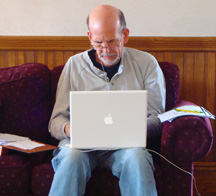
“I rejoice to hear that thou takest pains with thine art, for in this wonderful new age, art is worship. The more thou strivest to perfect it, the closer wilt thou come to God.”
– ‘Abdu’l-Baha, Baha’i Writings
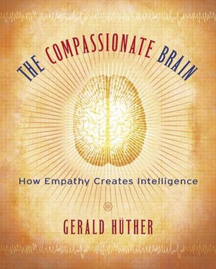
– Gerald Huther, The Compassionate Brain
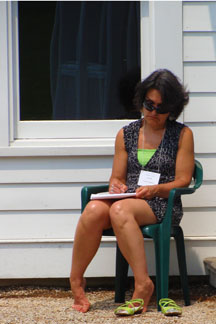
"Writing is about learning to pay attention and to communicate what is going on."
– Anne Lamott, Bird by Bird

- Donald M. Murray,
The Craft of Revision
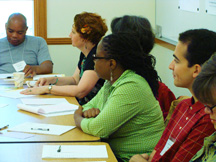
"Since there are no two people who have had exactly the same experiences in their lives and have used their brains in exactly the same way, every brain – given the course of its particular history – is unique."
- Neurobiologist Gerald Huther, The Compassionate Brain: How Empathy Creates Intelligence

- ‘Abdu’l-Baha, Baha’i Writings